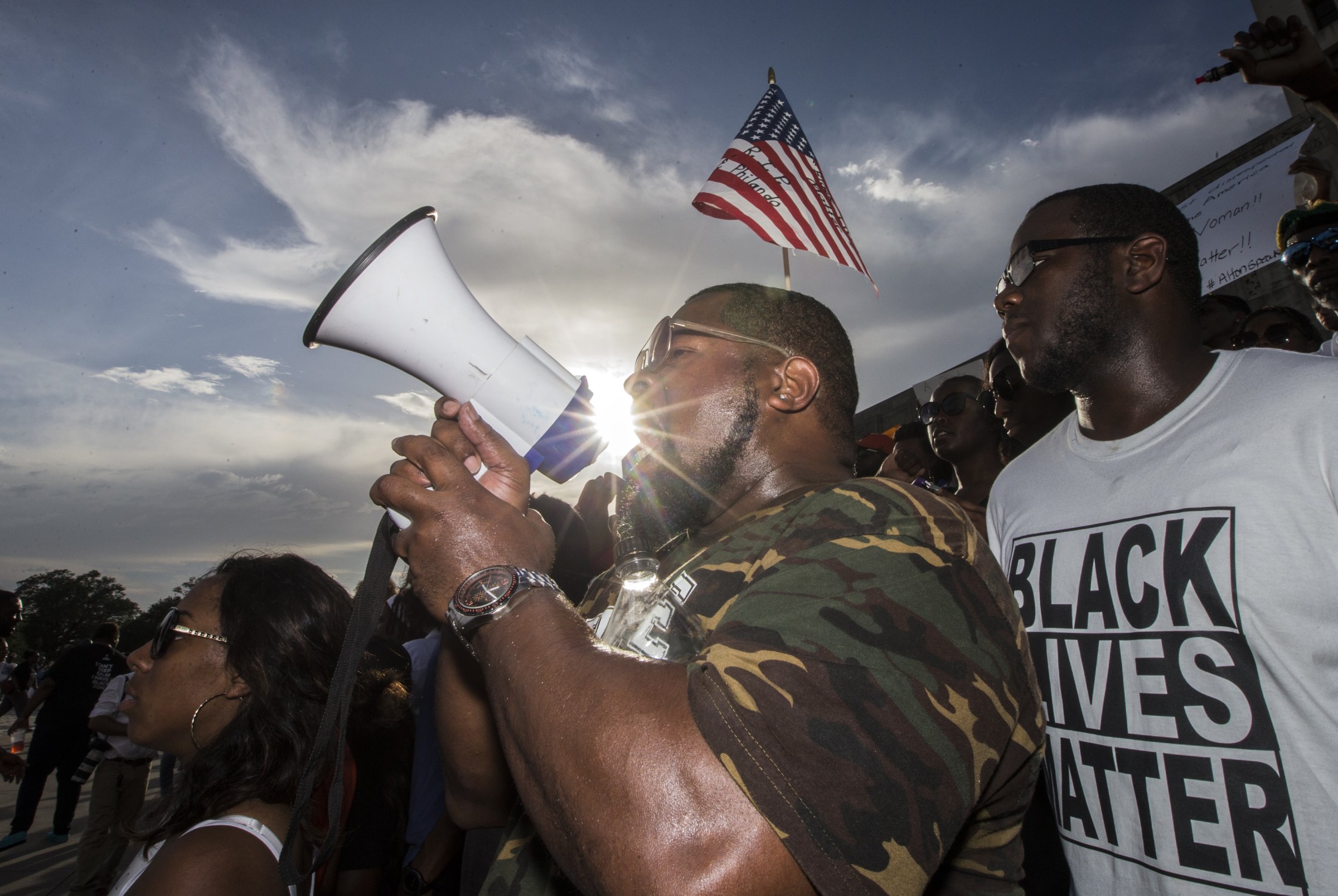
There is a sad, painful redundancy in the rhetoric and actions that have once again come about in the wake of last week’s killings of two black men by police officers in Falcon Heights, Minnesota, and Baton Rouge, Louisiana. The pain is only increased by the apparently premeditated murder of five police officers in Dallas at the end of a peaceful Black Lives Matter demonstration. This redundancy is heart-wrenching and excruciating for those of us, like me, who have lost a loved one to this particular form of frequent, deadly American gun violence we are all constantly witnessing. With sadness, we have watched this phenomenon appear and then disappear from our national consciousness until the seemingly inevitable next time. Malik Jones, my son, was shot to death at the end of a traffic stop on April 14, 1997 in New Haven, Connecticut, by an East Haven police officer. No matter what kind of lives Malik Jones, Philando Castile and Alton Sterling were living at the time of their deaths, I hope that all Americans can agree that allegedly violating motor vehicle laws or selling CDs should not be punished with death.
Much of the rhetoric we hear in the wake of these tragic events is blatantly inflammatory. A significant proportion of these unhelpful statements come from well-meaning people of varying ethnicities who immediately demonize either the police officers involved or the shooting victims, without bothering to look at the details of what occurred in a particular instance. These deadly encounters have become one of this country’s racial Rorschach tests. Often what people see is more reflective of their own psychological and emotional biases than what actually happened.
In addition, candidates running for the highest office in the land have deployed crude negative stereotypes that have only made matters worse. As a person who has taught and written about many forms of prejudice for over four decades, it is clear to me that anti-Mexican nativism, ISIS-inflamed Islamophobia and simmering Obama-era anti-black racism are varied, interconnected manifestations of a severe xenophobic subculture that our society must come to grips with. Further, within my own African American community, there are also “spokespeople” who use words that make matters worse—such as when a respected religious leader in the black community told me that the reason police officers shoot blacks is because today’s police departments evolved out of pre-Civil War slave patrols. As supposedly socially conscious community leaders, this group of people should be more careful about what they say and, ought to know better. This balkanization of our country fueled by the reckless rhetoric of our respective “leaders” has to stop. Words do matter.
Similarly, the actions of many Americans in the wake of these incidents have been frustrating to watch. I understand and often applaud those who use nonviolent direct action strategies in the wake of these deadly police-involved shootings. However, I wish that we could more frequently harness some of that spontaneous energy to focus on the total criminal justice system that is so obviously broken. Study after study has shown that if you are poor and/or dark-skinned, your encounters with the U.S. criminal justice system (from arrest to probation and parole) are more likely to lead to significantly worse outcomes than if you are affluent and white. Much of the anger and frustration that apparently led to the recent murders of five Dallas police officers and the injuring of seven others is at least partially related to this basic fact—meaning that fixing our criminal justice system can save the lives of the police. But fixing this will take a lot more than marches and protests. We would all do well to recall that in his now-famous 1963 “Letter from a Birmingham Jail,” the Rev. Dr. Martin Luther King Jr offered a time-tested model for nonviolent direct action. He stated: “In any nonviolent campaign there are four basic steps: collection of the facts to determine whether injustices are alive, negotiation, self-purification, and direct action.”
If we want to end these deadly encounters, we must improve U.S. race relations and focus particularly on implicit biases (as the Department of Justice has begun to do) and institutional racism, and we must do this while also raising African American community consciousness about what we can do about this long-standing problem. I am sure that others are already doing this and have useful suggestions for how to do these two things. Here are some of mine:
There is no pain like the pain of burying your child, particularly one who has died at the hands of people whose salary and bullets you pay for with your tax dollars. Back then and now in this latest intense round of foreign and domestic bloodshed, my Islamic faith that sustains me. However, if we Americans do not think more collaboratively, deeply and practically about how to respond to this problem, there are, I am sad to say, likely to be more Malik Joneses, Philando Castiles, Alton B. Sterlings and murders of police officers in our future.
More Must-Reads from TIME
- Donald Trump Is TIME's 2024 Person of the Year
- Why We Chose Trump as Person of the Year
- Is Intermittent Fasting Good or Bad for You?
- The 100 Must-Read Books of 2024
- The 20 Best Christmas TV Episodes
- Column: If Optimism Feels Ridiculous Now, Try Hope
- The Future of Climate Action Is Trade Policy
- Merle Bombardieri Is Helping People Make the Baby Decision
Contact us at letters@time.com